Disinfectants
Infection Control Supplies
Sterilization Equipment
Personal Protective Equipment
Hospitals
Pharmaceuticals
Research Laboratories
Food Industry
Healthcare
Commercial
Residential
Online
Offline
Direct Sales
North America
Europe
South America
Asia Pacific
Middle East and Africa
North America Outlook (USD Billion, 2019-2035)
North America Infection Control Market by Product Type
Disinfectants
Infection Control Supplies
Sterilization Equipment
Personal Protective Equipment
North America Infection Control Market by Application Type
Hospitals
Pharmaceuticals
Research Laboratories
Food Industry
North America Infection Control Market by End Use Type
Healthcare
Commercial
Residential
North America Infection Control Market by Distribution Channel Type
Online
Offline
Direct Sales
North America Infection Control Market by Regional Type
US
Canada
US Outlook (USD Billion, 2019-2035)
US Infection Control Market by Product Type
Disinfectants
Infection Control Supplies
Sterilization Equipment
Personal Protective Equipment
US Infection Control Market by Application Type
Hospitals
Pharmaceuticals
Research Laboratories
Food Industry
US Infection Control Market by End Use Type
Healthcare
Commercial
Residential
US Infection Control Market by Distribution Channel Type
Online
Offline
Direct Sales
CANADA Outlook (USD Billion, 2019-2035)
CANADA Infection Control Market by Product Type
Disinfectants
Infection Control Supplies
Sterilization Equipment
Personal Protective Equipment
CANADA Infection Control Market by Application Type
Hospitals
Pharmaceuticals
Research Laboratories
Food Industry
CANADA Infection Control Market by End Use Type
Healthcare
Commercial
Residential
CANADA Infection Control Market by Distribution Channel Type
Online
Offline
Direct Sales
Europe Outlook (USD Billion, 2019-2035)
Europe Infection Control Market by Product Type
Disinfectants
Infection Control Supplies
Sterilization Equipment
Personal Protective Equipment
Europe Infection Control Market by Application Type
Hospitals
Pharmaceuticals
Research Laboratories
Food Industry
Europe Infection Control Market by End Use Type
Healthcare
Commercial
Residential
Europe Infection Control Market by Distribution Channel Type
Online
Offline
Direct Sales
Europe Infection Control Market by Regional Type
Germany
UK
France
Russia
Italy
Spain
Rest of Europe
GERMANY Outlook (USD Billion, 2019-2035)
GERMANY Infection Control Market by Product Type
Disinfectants
Infection Control Supplies
Sterilization Equipment
Personal Protective Equipment
GERMANY Infection Control Market by Application Type
Hospitals
Pharmaceuticals
Research Laboratories
Food Industry
GERMANY Infection Control Market by End Use Type
Healthcare
Commercial
Residential
GERMANY Infection Control Market by Distribution Channel Type
Online
Offline
Direct Sales
UK Outlook (USD Billion, 2019-2035)
UK Infection Control Market by Product Type
Disinfectants
Infection Control Supplies
Sterilization Equipment
Personal Protective Equipment
UK Infection Control Market by Application Type
Hospitals
Pharmaceuticals
Research Laboratories
Food Industry
UK Infection Control Market by End Use Type
Healthcare
Commercial
Residential
UK Infection Control Market by Distribution Channel Type
Online
Offline
Direct Sales
FRANCE Outlook (USD Billion, 2019-2035)
FRANCE Infection Control Market by Product Type
Disinfectants
Infection Control Supplies
Sterilization Equipment
Personal Protective Equipment
FRANCE Infection Control Market by Application Type
Hospitals
Pharmaceuticals
Research Laboratories
Food Industry
FRANCE Infection Control Market by End Use Type
Healthcare
Commercial
Residential
FRANCE Infection Control Market by Distribution Channel Type
Online
Offline
Direct Sales
RUSSIA Outlook (USD Billion, 2019-2035)
RUSSIA Infection Control Market by Product Type
Disinfectants
Infection Control Supplies
Sterilization Equipment
Personal Protective Equipment
RUSSIA Infection Control Market by Application Type
Hospitals
Pharmaceuticals
Research Laboratories
Food Industry
RUSSIA Infection Control Market by End Use Type
Healthcare
Commercial
Residential
RUSSIA Infection Control Market by Distribution Channel Type
Online
Offline
Direct Sales
ITALY Outlook (USD Billion, 2019-2035)
ITALY Infection Control Market by Product Type
Disinfectants
Infection Control Supplies
Sterilization Equipment
Personal Protective Equipment
ITALY Infection Control Market by Application Type
Hospitals
Pharmaceuticals
Research Laboratories
Food Industry
ITALY Infection Control Market by End Use Type
Healthcare
Commercial
Residential
ITALY Infection Control Market by Distribution Channel Type
Online
Offline
Direct Sales
SPAIN Outlook (USD Billion, 2019-2035)
SPAIN Infection Control Market by Product Type
Disinfectants
Infection Control Supplies
Sterilization Equipment
Personal Protective Equipment
SPAIN Infection Control Market by Application Type
Hospitals
Pharmaceuticals
Research Laboratories
Food Industry
SPAIN Infection Control Market by End Use Type
Healthcare
Commercial
Residential
SPAIN Infection Control Market by Distribution Channel Type
Online
Offline
Direct Sales
REST OF EUROPE Outlook (USD Billion, 2019-2035)
REST OF EUROPE Infection Control Market by Product Type
Disinfectants
Infection Control Supplies
Sterilization Equipment
Personal Protective Equipment
REST OF EUROPE Infection Control Market by Application Type
Hospitals
Pharmaceuticals
Research Laboratories
Food Industry
REST OF EUROPE Infection Control Market by End Use Type
Healthcare
Commercial
Residential
REST OF EUROPE Infection Control Market by Distribution Channel Type
Online
Offline
Direct Sales
APAC Outlook (USD Billion, 2019-2035)
APAC Infection Control Market by Product Type
Disinfectants
Infection Control Supplies
Sterilization Equipment
Personal Protective Equipment
APAC Infection Control Market by Application Type
Hospitals
Pharmaceuticals
Research Laboratories
Food Industry
APAC Infection Control Market by End Use Type
Healthcare
Commercial
Residential
APAC Infection Control Market by Distribution Channel Type
Online
Offline
Direct Sales
APAC Infection Control Market by Regional Type
China
India
Japan
South Korea
Malaysia
Thailand
Indonesia
Rest of APAC
CHINA Outlook (USD Billion, 2019-2035)
CHINA Infection Control Market by Product Type
Disinfectants
Infection Control Supplies
Sterilization Equipment
Personal Protective Equipment
CHINA Infection Control Market by Application Type
Hospitals
Pharmaceuticals
Research Laboratories
Food Industry
CHINA Infection Control Market by End Use Type
Healthcare
Commercial
Residential
CHINA Infection Control Market by Distribution Channel Type
Online
Offline
Direct Sales
INDIA Outlook (USD Billion, 2019-2035)
INDIA Infection Control Market by Product Type
Disinfectants
Infection Control Supplies
Sterilization Equipment
Personal Protective Equipment
INDIA Infection Control Market by Application Type
Hospitals
Pharmaceuticals
Research Laboratories
Food Industry
INDIA Infection Control Market by End Use Type
Healthcare
Commercial
Residential
INDIA Infection Control Market by Distribution Channel Type
Online
Offline
Direct Sales
JAPAN Outlook (USD Billion, 2019-2035)
JAPAN Infection Control Market by Product Type
Disinfectants
Infection Control Supplies
Sterilization Equipment
Personal Protective Equipment
JAPAN Infection Control Market by Application Type
Hospitals
Pharmaceuticals
Research Laboratories
Food Industry
JAPAN Infection Control Market by End Use Type
Healthcare
Commercial
Residential
JAPAN Infection Control Market by Distribution Channel Type
Online
Offline
Direct Sales
SOUTH KOREA Outlook (USD Billion, 2019-2035)
SOUTH KOREA Infection Control Market by Product Type
Disinfectants
Infection Control Supplies
Sterilization Equipment
Personal Protective Equipment
SOUTH KOREA Infection Control Market by Application Type
Hospitals
Pharmaceuticals
Research Laboratories
Food Industry
SOUTH KOREA Infection Control Market by End Use Type
Healthcare
Commercial
Residential
SOUTH KOREA Infection Control Market by Distribution Channel Type
Online
Offline
Direct Sales
MALAYSIA Outlook (USD Billion, 2019-2035)
MALAYSIA Infection Control Market by Product Type
Disinfectants
Infection Control Supplies
Sterilization Equipment
Personal Protective Equipment
MALAYSIA Infection Control Market by Application Type
Hospitals
Pharmaceuticals
Research Laboratories
Food Industry
MALAYSIA Infection Control Market by End Use Type
Healthcare
Commercial
Residential
MALAYSIA Infection Control Market by Distribution Channel Type
Online
Offline
Direct Sales
THAILAND Outlook (USD Billion, 2019-2035)
THAILAND Infection Control Market by Product Type
Disinfectants
Infection Control Supplies
Sterilization Equipment
Personal Protective Equipment
THAILAND Infection Control Market by Application Type
Hospitals
Pharmaceuticals
Research Laboratories
Food Industry
THAILAND Infection Control Market by End Use Type
Healthcare
Commercial
Residential
THAILAND Infection Control Market by Distribution Channel Type
Online
Offline
Direct Sales
INDONESIA Outlook (USD Billion, 2019-2035)
INDONESIA Infection Control Market by Product Type
Disinfectants
Infection Control Supplies
Sterilization Equipment
Personal Protective Equipment
INDONESIA Infection Control Market by Application Type
Hospitals
Pharmaceuticals
Research Laboratories
Food Industry
INDONESIA Infection Control Market by End Use Type
Healthcare
Commercial
Residential
INDONESIA Infection Control Market by Distribution Channel Type
Online
Offline
Direct Sales
REST OF APAC Outlook (USD Billion, 2019-2035)
REST OF APAC Infection Control Market by Product Type
Disinfectants
Infection Control Supplies
Sterilization Equipment
Personal Protective Equipment
REST OF APAC Infection Control Market by Application Type
Hospitals
Pharmaceuticals
Research Laboratories
Food Industry
REST OF APAC Infection Control Market by End Use Type
Healthcare
Commercial
Residential
REST OF APAC Infection Control Market by Distribution Channel Type
Online
Offline
Direct Sales
South America Outlook (USD Billion, 2019-2035)
South America Infection Control Market by Product Type
Disinfectants
Infection Control Supplies
Sterilization Equipment
Personal Protective Equipment
South America Infection Control Market by Application Type
Hospitals
Pharmaceuticals
Research Laboratories
Food Industry
South America Infection Control Market by End Use Type
Healthcare
Commercial
Residential
South America Infection Control Market by Distribution Channel Type
Online
Offline
Direct Sales
South America Infection Control Market by Regional Type
Brazil
Mexico
Argentina
Rest of South America
BRAZIL Outlook (USD Billion, 2019-2035)
BRAZIL Infection Control Market by Product Type
Disinfectants
Infection Control Supplies
Sterilization Equipment
Personal Protective Equipment
BRAZIL Infection Control Market by Application Type
Hospitals
Pharmaceuticals
Research Laboratories
Food Industry
BRAZIL Infection Control Market by End Use Type
Healthcare
Commercial
Residential
BRAZIL Infection Control Market by Distribution Channel Type
Online
Offline
Direct Sales
MEXICO Outlook (USD Billion, 2019-2035)
MEXICO Infection Control Market by Product Type
Disinfectants
Infection Control Supplies
Sterilization Equipment
Personal Protective Equipment
MEXICO Infection Control Market by Application Type
Hospitals
Pharmaceuticals
Research Laboratories
Food Industry
MEXICO Infection Control Market by End Use Type
Healthcare
Commercial
Residential
MEXICO Infection Control Market by Distribution Channel Type
Online
Offline
Direct Sales
ARGENTINA Outlook (USD Billion, 2019-2035)
ARGENTINA Infection Control Market by Product Type
Disinfectants
Infection Control Supplies
Sterilization Equipment
Personal Protective Equipment
ARGENTINA Infection Control Market by Application Type
Hospitals
Pharmaceuticals
Research Laboratories
Food Industry
ARGENTINA Infection Control Market by End Use Type
Healthcare
Commercial
Residential
ARGENTINA Infection Control Market by Distribution Channel Type
Online
Offline
Direct Sales
REST OF SOUTH AMERICA Outlook (USD Billion, 2019-2035)
REST OF SOUTH AMERICA Infection Control Market by Product Type
Disinfectants
Infection Control Supplies
Sterilization Equipment
Personal Protective Equipment
REST OF SOUTH AMERICA Infection Control Market by Application Type
Hospitals
Pharmaceuticals
Research Laboratories
Food Industry
REST OF SOUTH AMERICA Infection Control Market by End Use Type
Healthcare
Commercial
Residential
REST OF SOUTH AMERICA Infection Control Market by Distribution Channel Type
Online
Offline
Direct Sales
MEA Outlook (USD Billion, 2019-2035)
MEA Infection Control Market by Product Type
Disinfectants
Infection Control Supplies
Sterilization Equipment
Personal Protective Equipment
MEA Infection Control Market by Application Type
Hospitals
Pharmaceuticals
Research Laboratories
Food Industry
MEA Infection Control Market by End Use Type
Healthcare
Commercial
Residential
MEA Infection Control Market by Distribution Channel Type
Online
Offline
Direct Sales
MEA Infection Control Market by Regional Type
GCC Countries
South Africa
Rest of MEA
GCC COUNTRIES Outlook (USD Billion, 2019-2035)
GCC COUNTRIES Infection Control Market by Product Type
Disinfectants
Infection Control Supplies
Sterilization Equipment
Personal Protective Equipment
GCC COUNTRIES Infection Control Market by Application Type
Hospitals
Pharmaceuticals
Research Laboratories
Food Industry
GCC COUNTRIES Infection Control Market by End Use Type
Healthcare
Commercial
Residential
GCC COUNTRIES Infection Control Market by Distribution Channel Type
Online
Offline
Direct Sales
SOUTH AFRICA Outlook (USD Billion, 2019-2035)
SOUTH AFRICA Infection Control Market by Product Type
Disinfectants
Infection Control Supplies
Sterilization Equipment
Personal Protective Equipment
SOUTH AFRICA Infection Control Market by Application Type
Hospitals
Pharmaceuticals
Research Laboratories
Food Industry
SOUTH AFRICA Infection Control Market by End Use Type
Healthcare
Commercial
Residential
SOUTH AFRICA Infection Control Market by Distribution Channel Type
Online
Offline
Direct Sales
REST OF MEA Outlook (USD Billion, 2019-2035)
REST OF MEA Infection Control Market by Product Type
Disinfectants
Infection Control Supplies
Sterilization Equipment
Personal Protective Equipment
REST OF MEA Infection Control Market by Application Type
Hospitals
Pharmaceuticals
Research Laboratories
Food Industry
REST OF MEA Infection Control Market by End Use Type
Healthcare
Commercial
Residential
REST OF MEA Infection Control Market by Distribution Channel Type
Online
Offline
Direct Sales


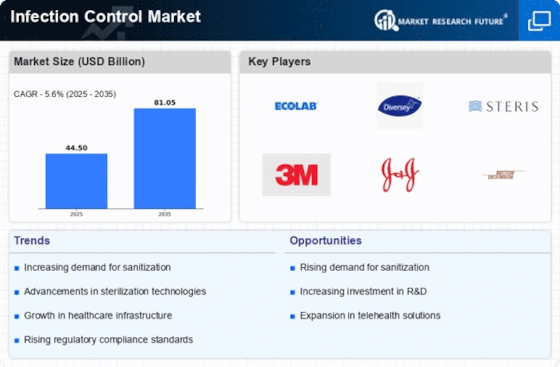
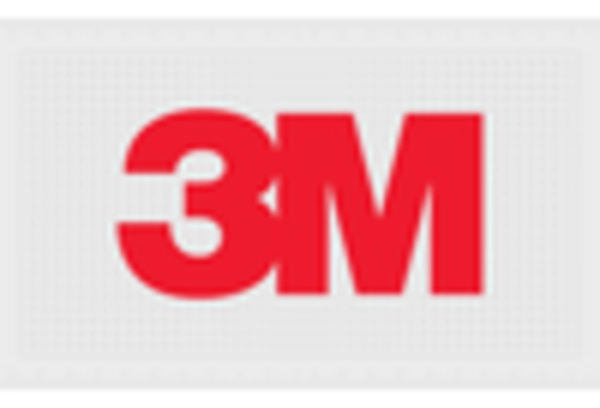
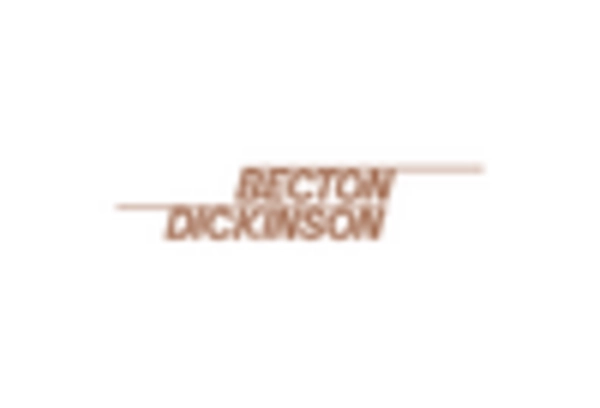
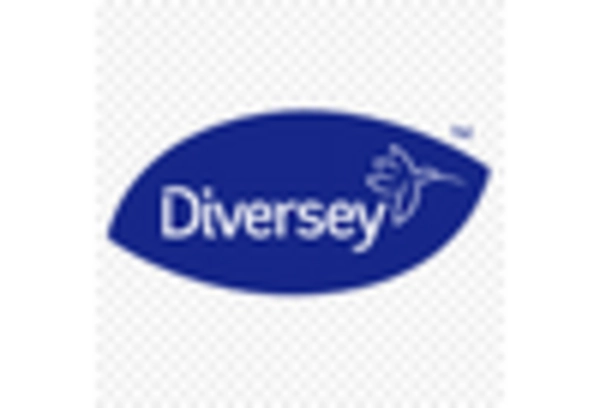
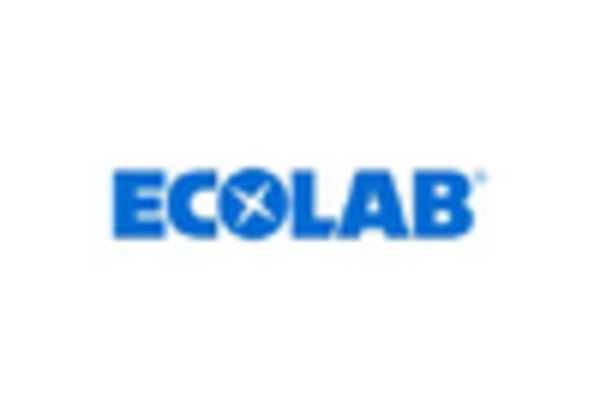

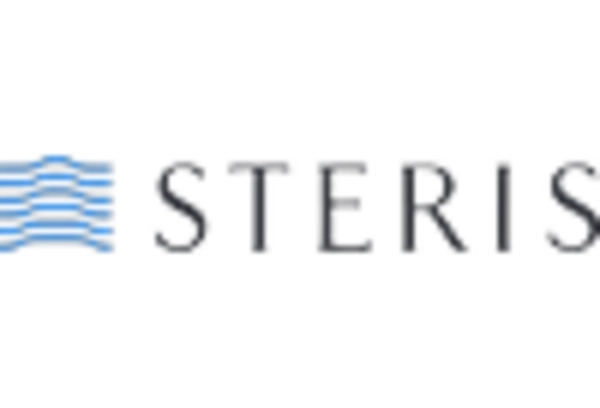









Leave a Comment